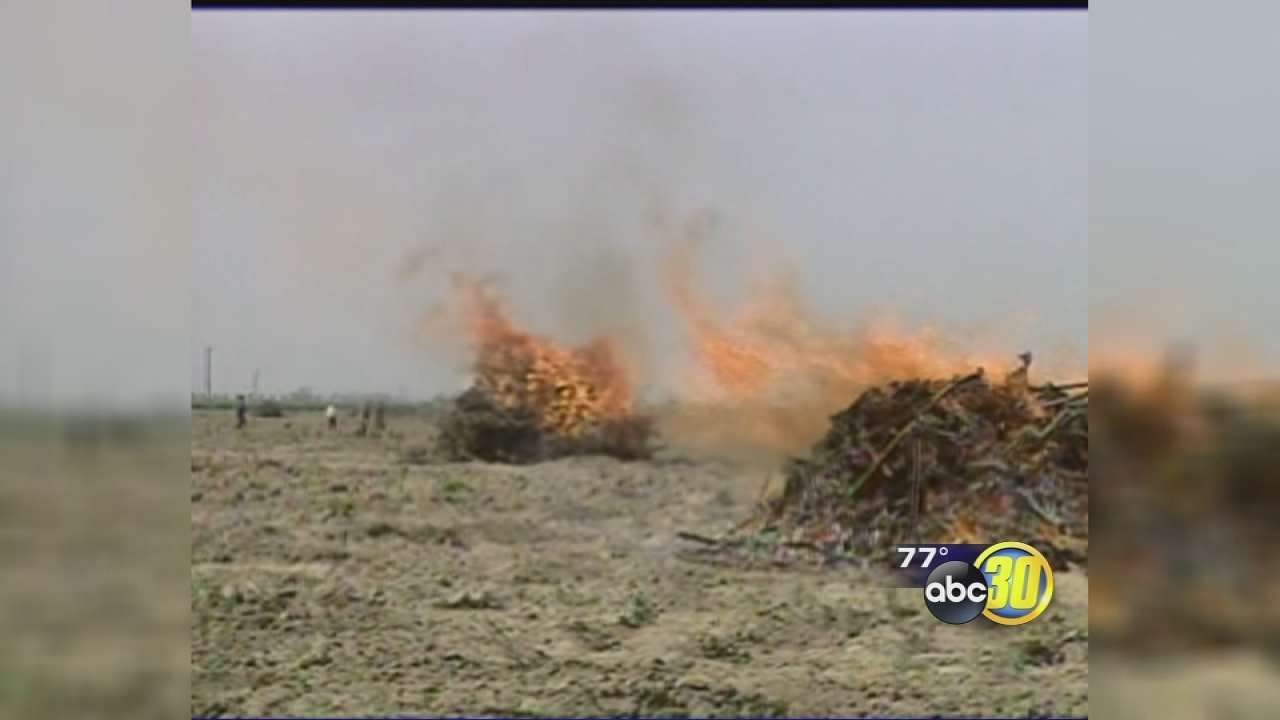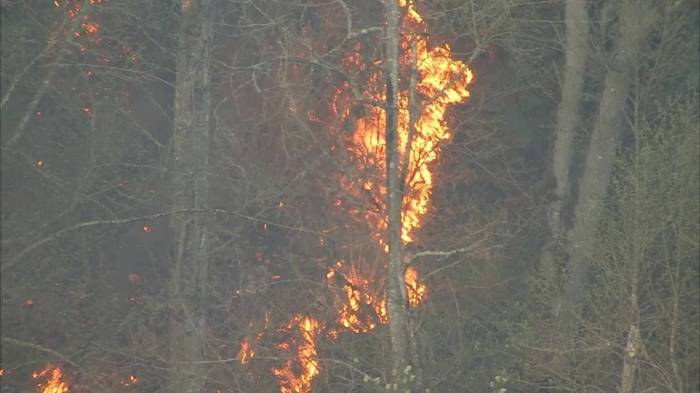Fayette County passes 30-day burn ban due to drought conditions – Fayette County passes a 30-day burn ban due to drought conditions, a measure intended to prevent uncontrolled wildfires and protect the community from the dangers of dry vegetation. The decision comes after a prolonged period of low rainfall, leaving the county vulnerable to the spread of fires.
The ban restricts activities like outdoor burning, agricultural practices, and certain recreational activities.
The burn ban aims to minimize the risk of wildfires, which can quickly escalate in dry conditions, causing significant damage to property, the environment, and posing a threat to public safety. The county is urging residents and businesses to be mindful of the situation and cooperate with the ban to protect the community.
Impact of the Burn Ban

Fayette County has implemented a 30-day burn ban due to severe drought conditions. This measure aims to prevent wildfires, which are a significant threat during periods of dry weather.
Dangers of Uncontrolled Fires
The dry vegetation and low humidity prevalent during drought conditions create a highly flammable environment. Uncontrolled fires can spread rapidly, posing a serious risk to life, property, and the environment.
Environmental Risks
- Degradation of Soil:Wildfires destroy the protective layer of vegetation and organic matter in the soil, leading to erosion and loss of fertility. This negatively impacts plant growth and biodiversity.
- Air Pollution:Smoke from wildfires contains harmful pollutants such as particulate matter, carbon monoxide, and volatile organic compounds. These pollutants can cause respiratory problems, cardiovascular disease, and other health issues.
- Wildlife Habitat Loss:Wildfires can destroy habitats for a wide range of wildlife, including birds, mammals, reptiles, and amphibians. This can lead to population decline and displacement.
Property Risks
- Structure Fires:Uncontrolled fires can easily spread to nearby structures, causing significant damage or complete destruction.
- Property Damage:Wildfires can damage fences, crops, and other property, resulting in financial losses.
- Economic Impact:The damage caused by wildfires can have a significant economic impact on communities, affecting tourism, agriculture, and other industries.
Public Safety Risks
- Injuries and Fatalities:Wildfires can cause serious injuries and fatalities, especially for firefighters and those who may be caught in the path of a blaze.
- Evacuations:Wildfires can force residents to evacuate their homes, leading to disruption and displacement.
- Health Risks:Smoke from wildfires can cause respiratory problems, eye irritation, and other health issues, especially for vulnerable populations such as children, the elderly, and those with pre-existing health conditions.
Restrictions and Enforcement
The Fayette County burn ban prohibits various activities that could potentially spark a wildfire. These restrictions are designed to protect the community and minimize the risk of uncontrolled fires.
Activities Prohibited
The burn ban prohibits the following activities:
- Burning of any trash, yard waste, or other materials.
- Using fireworks or other pyrotechnics.
- Operating outdoor fireplaces, fire pits, and grills.
- Smoking in areas with dry vegetation.
- Using any type of machinery or equipment that could generate sparks.
Exceptions
There are some exceptions to the burn ban. These include:
- Burning by a licensed professional with a permit.
- Cooking and heating using gas or electric grills.
- Using fire for ceremonial purposes with a permit.
Enforcement Mechanisms
The burn ban is enforced by the Fayette County Sheriff’s Office. Deputies will be patrolling the county to ensure compliance.
Obtain a comprehensive document about the application of AZ Supreme Court won’t limit 97,000 improperly registered voters that is effective.
Consequences of Violation
Violators of the burn ban may face fines and penalties. The exact consequences will depend on the severity of the violation. For example, a first-time offender might receive a warning, while a repeat offender could face a fine or even jail time.
Public Awareness and Education

Keeping residents informed about the burn ban and drought conditions is crucial. It ensures compliance, minimizes fire risks, and promotes responsible water usage. Effective communication helps residents understand the severity of the situation and take necessary precautions.
Methods of Communication
Fayette County has employed a variety of methods to communicate information about the burn ban to residents and businesses. These include:
- Public Announcements:The county has utilized local radio stations, television channels, and online platforms to broadcast public service announcements about the burn ban and its implications.
- Social Media Campaigns:Engaging social media platforms like Facebook, Twitter, and Instagram has enabled the county to reach a wider audience and provide updates, reminders, and educational content about the burn ban and drought conditions.
- Community Meetings:The county has organized public meetings and town halls to directly engage with residents, answer questions, and provide detailed information about the burn ban and drought situation.
- Website and Email Updates:The county’s official website and email newsletters have been used to disseminate information about the burn ban, including updates on the drought conditions, enforcement measures, and tips for water conservation.
Examples of Successful Public Awareness Initiatives, Fayette County passes 30-day burn ban due to drought conditions
Several initiatives have proven successful in raising public awareness about drought conditions and promoting responsible water usage:
- Water Conservation Workshops:The county has organized workshops to educate residents about water conservation techniques, such as using low-flow showerheads, watering lawns efficiently, and fixing leaks.
- Public Service Campaigns:The county has launched public service campaigns featuring local celebrities or community leaders promoting water conservation practices and emphasizing the importance of compliance with the burn ban.
- School Outreach Programs:The county has partnered with local schools to implement educational programs about drought conditions, fire safety, and water conservation, teaching children about the importance of responsible water usage.
- Community Collaboration:The county has collaborated with local businesses, community organizations, and volunteer groups to distribute informational materials, organize events, and promote water conservation awareness within the community.
Ending Remarks: Fayette County Passes 30-day Burn Ban Due To Drought Conditions
Fayette County’s 30-day burn ban highlights the seriousness of the current drought conditions. While the ban imposes restrictions, it’s a necessary step to safeguard the community from the devastating consequences of wildfires. By understanding the rationale behind the ban and taking proactive measures, residents and businesses can contribute to the safety and well-being of the county.
Essential Questionnaire
What are the specific activities prohibited under the burn ban?
The burn ban restricts activities like outdoor burning, agricultural practices, and certain recreational activities. Specific details about what is and is not allowed are available on the Fayette County website and through official announcements.
What are the consequences of violating the burn ban?
Violators of the burn ban could face fines and penalties. The county encourages residents and businesses to comply with the restrictions to ensure the safety of the community.
How long will the burn ban be in effect?
The burn ban is currently in effect for 30 days. The county will continue to monitor drought conditions and may extend the ban if necessary.
What are the mitigation efforts being undertaken to address the drought?
The county is implementing various mitigation efforts, including water conservation measures, emergency preparedness programs, and drought relief initiatives. Information about these efforts is available on the Fayette County website and through official announcements.
 CentralPoint Latest News
CentralPoint Latest News




